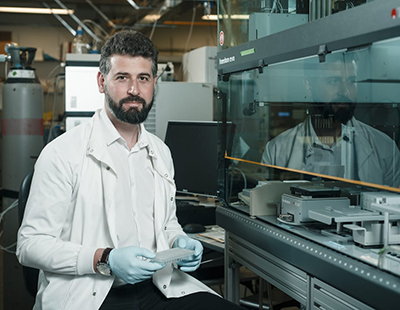Spinout secures £3.2m to develop novel cancer therapies

Macomics Ltd, a spinout from the University of Edinburgh, is developing novel immuno-therapies to modulate the activity of macrophages, increasing the body’s immune defence against tumours in cancer sufferers. The company secured £3.2 million in a seed round led by Epidarex Capital, a transatlantic life science VC, with the Scottish Investment Bank, the investment arm of Scottish Enterprise.
The Macomics’ approach builds on the world-leading academic research into tumour associated macrophages (TAMs) from the laboratory of Professor Jeffrey Pollard, Director of the MRC Centre for Reproductive Health at the University of Edinburgh, working with co-founder Dr Luca Cassetta.
Their proprietary technology provides insights into TAMs and the tumour microenvironment, expected to lead to new ways to increase the body’s immune defence against tumours.
Professor Jeffrey Pollard, Founder Director of Macomics and Director of the MRC Centre for Reproductive Health at the University of Edinburgh said “ The creation of Macomics based on the research of my group at the University of Edinburgh provides the team with an exciting opportunity to develop new effective cancer drugs against macrophage targets that will bring real clinical benefit to many more patients suffering from cancer.”
Company formation and the in-licensing of technology was facilitated by the team at Edinburgh Innovations.
Dr John Lonsdale, Head of Enterprise, Edinburgh Innovations said “ The formation of Macomics was a complex process involving support from many specialists at EI. The team identified and secured patentable technology, licensed IP into the company and sourced VC-led investment.”
Epidarex Capital is a transatlantic venture firm that invests in early-stage, high-growth life science companies in under-ventured markets.
Dr Elizabeth Roper, Partner at Epidarex Capital & Investor Director at Macomics added “ The macrophage-based approach that Macomics is pioneering has significant potential in the treatment of cancer, as recent deals in the tumour-associated macrophage area indicate. We look forward to working with the team to support Macomics’ growth and to help it realise the potential of its world-class science.”



